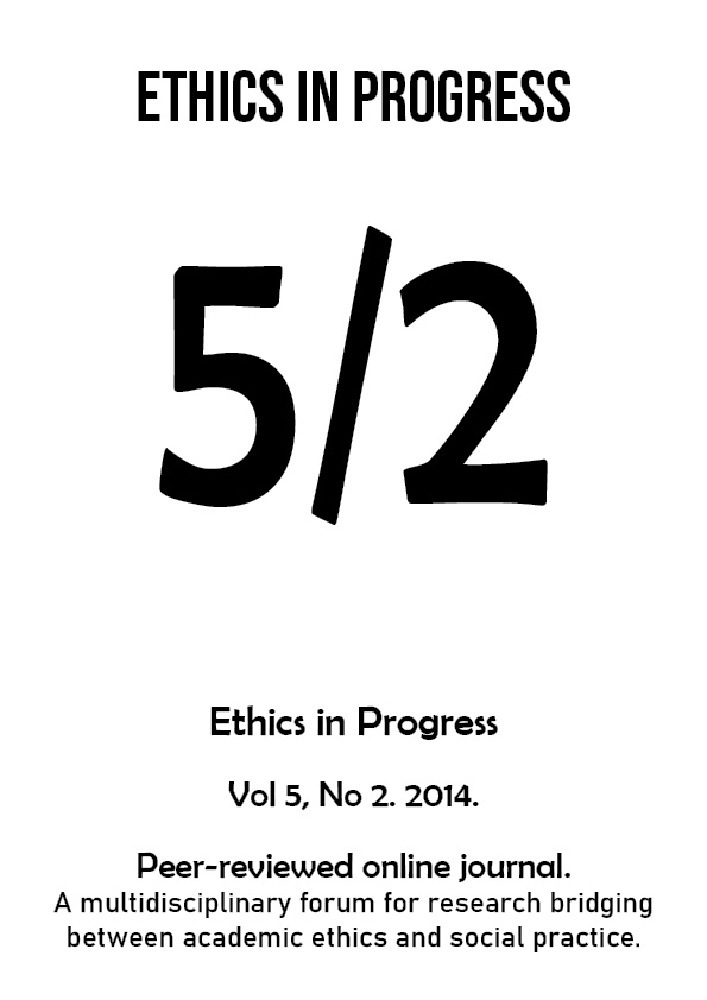Abstract
In the paper, I discuss the possible gap between the transhumanist perspective of controlling and perfecting human evolution through scientific means and the Darwinian and neo-Darwinian theory of biological evolution. I argue that, due to such gap, the transhumanist programme is flawed and requires a new and better understanding of biological mechanisms in order to attain its goals.
References
Agar, N. 1998. “Liberal Eugenics.” Public Affairs Quarterly 12 (2): 137–155.
Bostrom, N. 2003. “Human Genetic Enhancements: A Transhumanist Perspective.” The Journal of Value Inquiry 37 (4): 493–506.
Bostrom, N. 2005a. “In Defense of Posthuman Dignity.” Bioethics 19 (3): 202–14.
Bostrom, N. 2005b. “A History of Transhumanist Thought.” Journal of Evolution and Technology 14 (1): 1–25.
Freedman, L. P. & Isaacs, S. L. 1993. “Human Rights and Reproductive Choice.” Studies in Family Planning 24 (1): 18.
Gadjev, I. 2015. “Nature and Nurture: Lamarck’s Legacy.” Biological Journal of the Linnean Society 114 (1): 242–47.
Gould, S. J. 1980. The Panda’s Thumb: More Reflections in Natural History. New York: Norton.
Habermas, J. 2003. The Future of Human Nature. Cambridge: Polity.
Hubisz, M. J. & Pollard, K. S. 2014. “Exploring the Genesis and Functions of Human Accelerated Regions Sheds Light on Their Role in Human Evolution.” Current Opinion in Genetics & Development 29: 15–21.
Huxley, J. 2015. “Transhumanism”. Ethics in Progress 6 (1): 12–16.
Łastowski, K. 2004. “Lamarck i Darwin. U podstaw idei ewolucji.” In:
Łastowski, K. (Ed.), Teoria i metoda w biologii ewolucyjnej. Poznań: Wydawnictwo Zysk i S-ka.
Łastowski, K. 2009. “Dwieście lat idei ewolucji w biologii: Lamarck – Darwin –Wallace”. Kosmos. Problemy nauk biologicznych 58 (3-4): 257–71.
Rubin, Ch. T. 2014. Eclipse of Man: Human Extinction and the Meaning of Progress. New York: Encounter Books.
Savulescu, J. 2001. “Procreative Beneficence: Why We Should Select the Best Children.” Bioethics 15 (5-6): 413–26.
Savulescu, J. 2005. “New Breeds of Humans: The Moral Obligation to Enhance.” Reproductive BioMedicine Online 10 (January): 36–39.
Spaemann, R. 2012. Kroki poza siebie: Przemówienia i eseje. Trans. J. Merecki. Warszawa: Oficyna Naukowa.
Stetka, B. 2015. “Schizophrenia May Be the Price We Pay for a Big Brain.” Scientific American Mind 26 (4).
Sussman, R. W., Garber, P. A., & Cheverud, J. M. 2005. “Importance of Cooperation and Affiliation in the Evolution of Primate Sociality.” American Journal of Physical Anthropology 128 (1): 84–97.
Szczeklik, A. 2003. Katharsis: O uzdrowicielskiej mocy natury i sztuki. Kraków: Znak.
Van Soom, A, Peelman, L., Holt, W. V., & Fazeli, A. 2014. “An Introduction to Epigenetics as the Link Between Genotype and Environment: A Personal View.” Reproduction in Domestic Animals 49 (September): 2–10.
Xu, K., Schadt, E. E., Pollard, K. S., Roussos, P., & Dudley, J. T. 2015. “Genomic and Network Patterns of Schizophrenia Genetic Variation in Human Evolutionary Accelerated Regions.” Molecular Biology and Evolution 32 (5): 1148–1160.
Zaborowski, H. 2010. Robert Spaemann’s Philosophy of the Human Person: Nature, Freedom, and the Critique of Modernity. Oxford: New York: Oxford University Press.




